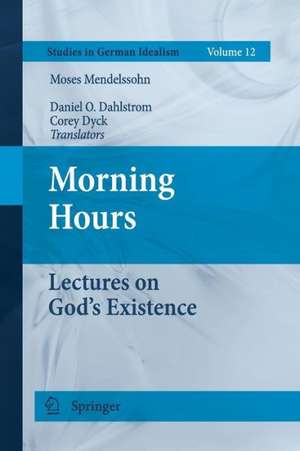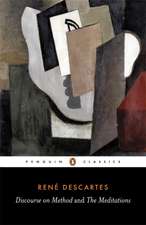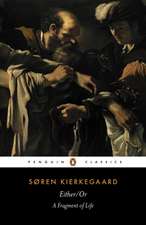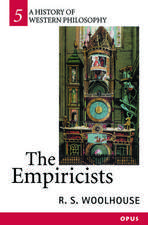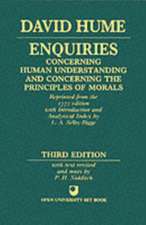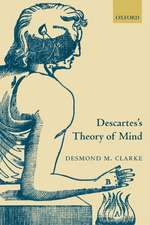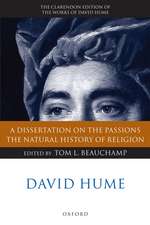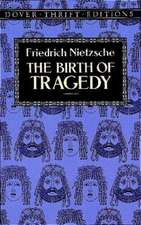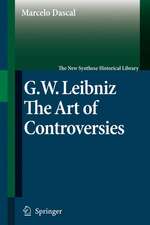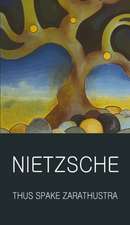Morning Hours: Lectures on God's Existence: Studies in German Idealism, cartea 12
Editat de Daniel O. Dahlstrom, Corey Dyck Autor Moses Mendelssohnen Limba Engleză Paperback – 15 oct 2014
| Toate formatele și edițiile | Preț | Express |
|---|---|---|
| Paperback (1) | 542.50 lei 38-44 zile | |
| SPRINGER NETHERLANDS – 15 oct 2014 | 542.50 lei 38-44 zile | |
| Hardback (1) | 640.06 lei 6-8 săpt. | |
| SPRINGER NETHERLANDS – 8 feb 2011 | 640.06 lei 6-8 săpt. |
Din seria Studies in German Idealism
-
 Preț: 407.19 lei
Preț: 407.19 lei - 18%
 Preț: 1835.53 lei
Preț: 1835.53 lei - 18%
 Preț: 789.20 lei
Preț: 789.20 lei - 15%
 Preț: 638.89 lei
Preț: 638.89 lei - 18%
 Preț: 949.10 lei
Preț: 949.10 lei - 18%
 Preț: 728.28 lei
Preț: 728.28 lei - 15%
 Preț: 646.62 lei
Preț: 646.62 lei - 15%
 Preț: 652.49 lei
Preț: 652.49 lei -
 Preț: 387.75 lei
Preț: 387.75 lei - 18%
 Preț: 792.19 lei
Preț: 792.19 lei - 24%
 Preț: 796.86 lei
Preț: 796.86 lei - 18%
 Preț: 786.84 lei
Preț: 786.84 lei - 15%
 Preț: 643.00 lei
Preț: 643.00 lei - 18%
 Preț: 791.40 lei
Preț: 791.40 lei - 15%
 Preț: 642.83 lei
Preț: 642.83 lei - 18%
 Preț: 951.29 lei
Preț: 951.29 lei - 18%
 Preț: 1231.47 lei
Preț: 1231.47 lei - 18%
 Preț: 955.25 lei
Preț: 955.25 lei - 15%
 Preț: 646.94 lei
Preț: 646.94 lei - 18%
 Preț: 957.62 lei
Preț: 957.62 lei - 18%
 Preț: 1116.57 lei
Preț: 1116.57 lei
Preț: 542.50 lei
Preț vechi: 669.75 lei
-19% Nou
Puncte Express: 814
Preț estimativ în valută:
103.82€ • 112.73$ • 87.21£
103.82€ • 112.73$ • 87.21£
Carte tipărită la comandă
Livrare economică 19-25 aprilie
Preluare comenzi: 021 569.72.76
Specificații
ISBN-13: 9789400735200
ISBN-10: 9400735200
Pagini: 164
Ilustrații: XX, 142 p.
Dimensiuni: 155 x 235 x 9 mm
Greutate: 0.24 kg
Ediția:2011
Editura: SPRINGER NETHERLANDS
Colecția Springer
Seria Studies in German Idealism
Locul publicării:Dordrecht, Netherlands
ISBN-10: 9400735200
Pagini: 164
Ilustrații: XX, 142 p.
Dimensiuni: 155 x 235 x 9 mm
Greutate: 0.24 kg
Ediția:2011
Editura: SPRINGER NETHERLANDS
Colecția Springer
Seria Studies in German Idealism
Locul publicării:Dordrecht, Netherlands
Public țintă
ResearchCuprins
First Part.- Preliminary report.- Preliminary Knowledge of Truth, Semblance, and Error.- I. What is truth?- II. Cause – Effect – Ground – Force.- III. Evidence – Of immediate Knowledge. Rational Knowledge – Knowledge of Nature.- IV. Truth and Illusion.- V. Existence – Being Awake – Dreams – Rapture.- VI. Combination of Ideas – Idealism.- VII. Continuation. The Idealist's Dispute with the Dualist. Truth-Drive and Approval- Drive. - Second Part.- Scientific Doctrinal Concepts of God's Existence.- VIII. Importance of the Investigation. On Basedow’s Principle of the Duty to Believe.- Axiomata.- IX. The evidence of the pure and the applied doctrine of magnitudes. Comparison with the evidence for the proofs of God's existence. Different methods of those proofs.- X. Allegorical Dream. – Reason and Common Sense.- XI. Epicureanism. – Accident. – Chance. A Series of Causes and Effects, without End, without Beginning. Progression into Infinity, Forwards and Backwards. – The Timeless, without Beginning, without End and without Progression.- XII. Sufficient Reason for the Contingent in the Necessary. – The former is somewhere and sometimes, the latter is everywhere and all times. – The former is only in relation to space and time; the latter is unqualifiedly the best and most perfect. Everything that is, is best. – All God's thoughts, insofar as they have the best as their subject, attain actuality.- XIII. Spinozism. – Pantheism. – All is One and One is All. – Refutation.- XIV. Continued dispute with the pantheists. – Approximation. – Point of unison with them. – Innocuousness of the purified patheism. – Compatibility with religion and ethics insofar as they are practical.- XV. Lessing. – His Contribution to the Religion of Reason. – His Thoughts on Purified Pantheism.- XVI. Elucidation of the concepts ofnecessity, contingency, independence, and dependence. – Attempt at a new proof for the existence of God on the basis of the incompleteness of self-knowledge.- XVII. The a priori Grounds of Proof of the Existence of a supremely perfect, necessary, independent Being.
Textul de pe ultima copertă
Morning Hours is the only available English translation of Morgenstunden by Moses Mendelssohn, the foremost Jewish thinker of the German Enlightenment. Published six months before Mendelssohn's death on January 4, 1786, Morning Hours is the most sustained presentation of his mature epistemological and metaphysical views, all elaborated in the service of presenting his son with proofs for the existence of God. But Morning Hours is much more than a theoretical treatise. It also plays a central role in the drama of the Pantheismusstreit, Mendelssohn's "dispute" with F. H. Jacobi over the nature and scope of Lessing's attitude toward Spinoza and "pantheism". In Morning Hours Mendelssohn attempts to set the record straight regarding his beloved Lessing in this connection, not least by demonstrating the absence of any practical difference between theism and a "purified pantheism".
Caracteristici
The only available English translation of the crowning philosophical treatise of Mendelssohn's career A nuanced but controversial reconciliation of a "refined pantheism" with religion and morality Exemplifies a distinctively Jewish insight into the relation between philosophy and purely verbal disputes Argues for approval's irreducibility to knowledge or desire, with enormous consequences for aesthetics Includes supplementary material: sn.pub/extras
